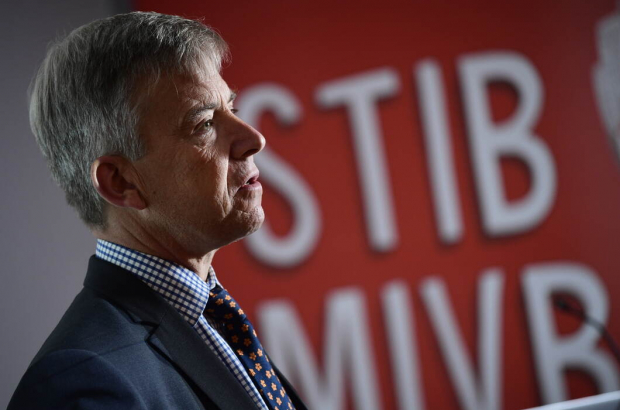- Daily & Weekly newsletters
- Buy & download The Bulletin
- Comment on our articles
Headscarf ruling creates tensions within Stib, Brussels government
The recent decision to convict Stib of discrimination, a decision the Brussels public transport provider says it will not appeal, paves the way for the abolition of its headscarf ban.
However, disagreements at a political level over neutrality may delay or even remove the possibility of seeing female bus drivers wearing headscarves or counter clerks with a Sikh turban in the future.
The case dates back to December 2015 when a woman wearing a headscarf applied to work for Stib. After an unsuccessful first application, she tried again in January 2016. It was then revealed that she was twice refused the job because the annex to Stib's labour regulations does not allow signs of religious, political or philosophical beliefs. The public transport operator applies strict neutrality.
The employment tribunal ruled at the beginning of May this year that Stib was guilty of double discrimination. The tribunal ruled that, not only is the ban on wearing a headscarf disproportionate to the intended objective of guaranteeing the neutrality of the public transport company, but there is also gender discrimination. Male Muslims at Stib can grow their beards. So, the Muslim woman is disadvantaged.
The ruling was a surprise result, even for Unia, the trade union that brought the case. Unia chief executive Patrick Charlier admitted in a newspaper interview a few days after the verdict that when it comes to the headscarf, a judge's ruling can never really be predicted.
Stib must now pay €51,000 in damages. More importantly, it must now decide whether or not to abandon the neutrality rule. In addition, Stib feels badly attacked by the judgment. It has been one of the most diverse companies in Brussels for years. The discrimination verdict is one the company finds extremely hard to accept.
Last Tuesday, the company’s management committee met to agree on a position. But the members of the management committee, which is composed along political lines, have not come to an agreement. The decision has been adjourned and the issue will be back on the agenda this week, although it has been decided that the verdict will not be appealed.
The case divides Brussels politics to the very heart of its ranks.
There are broadly three points of view. For majority party Défi, neutrality is paramount. In their eyes, an appeal must be lodged, and the employment regulations cannot be relaxed. The party wants to get the principle of separation in the state from civil and religious society into the constitution in the federal parliament, following the French example.
The Socialists and Greens believe that Stib should accept the ruling. Ecolo, the Green party, believes in the principle of "inclusive neutrality". It is not what is on the employee's head that counts to determine neutrality, but how the employee of the public service deals with the citizen.
And then there is Open VLD – the Flemish Liberals and Democrats, and Stib itself. They think there should be an appeal. Chief executive Brieuc de Meeûs believes that the public transport company should stand up for its rights. Open VLD agrees with the Stib in this. However, Open VLD and Stib are less firm on the continuance of the headscarf ban. They say this is a discussion for a later date.
The Brussels majority is therefore deeply divided. An important nuance is that not everyone within the French-speaking Socialist Party (PS) is aligned either. Within the Stib management committee, the PS considers that no appeal should be lodged. In the Brussels government, however, minister-president Rudi Vervoort, from PS, thinks otherwise.
It explains why the Brussels majority prefers Stib to make the decision. Otherwise, this could lead to a government crisis, with PS, Défi and Open VLD more opposed to the abolition of the headscarf ban, and Ecolo, and One.brussels/Vooruit in favour of abolishing it.
However, it is not inconceivable that the case will end up going before the Brussels Government. One of the two government commissioners is from Open VLD. He can start a procedure for non-compliance with the management agreement, which means that the Brussels Government must then deal with it. He has until Thursday to do so. In any case, Stib must decide by the end of June at the latest how it wishes to proceed.


















Comments
Politicians never seem interested by the problems that citizens actually encounter, like having an efficient public transportation system. No, instead, they focus on what the company's employees should or shouldn't wear...